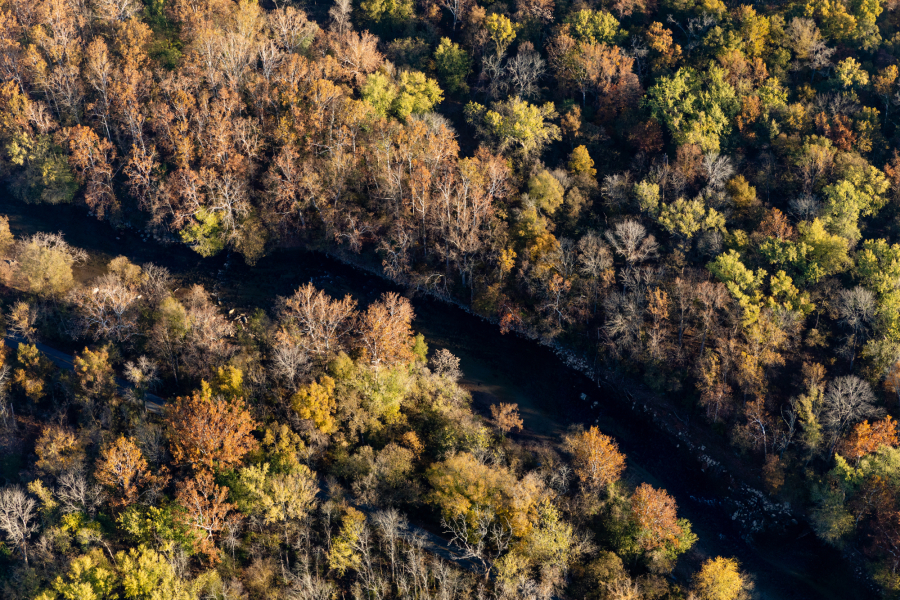Forestry Workgroup
The Forestry Workgroup coordinates, develops and implements plans and projects that focus on the contributions of forest lands in restoring the health and productivity of the Chesapeake Bay watershed and in retaining their economic potential.
Meetings
Forestry Workgroup Meeting - March 2026
Forestry Workgroup Meeting - April 2026
Forestry Workgroup Meeting - May 2026
Forestry Workgroup Meeting - February 2026
Forestry Workgroup Meeting - January 2026
CANCELED: Healthy Landscapes Goal Joint Meeting
About
The Forestry Workgroup coordinates, develops and implements plans and projects that focus on the contributions of forest lands in restoring the health and productivity of the Chesapeake Bay watershed and in retaining their economic potential. The workgroup provides a forum to discuss issues and identify opportunities among the forestry community, interested individuals and organizations, and federal, state and local governments.

Objectives
- Enhance communication and education regarding forestry issues within the Bay watershed.
- Identify the need and opportunities for demonstration projects and program development.
- Promote the establishment and management of forests and trees in urban, rural and developing areas to improve water quality and aquatic and terrestrial habitats associated with the Bay and its tributaries.
- Promote forestry research and monitoring needed to evaluate forest contributions toward protection and restoration of the Bay.
- Ensure forest resource information pertinent to the Bay is available to individuals and organizations interested and/or involved in implementing the Chesapeake Bay Program.
The Forestry Workgroup is also pursuing the 2014 Chesapeake Bay Watershed Agreement goal and outcomes to:
- Vital Habitats Goal: Restore, enhance and protect a network of land and water habitats to support fish and wildlife and to afford other public benefits, including water quality, recreational uses and scenic value across the watershed.
- Forest Buffer Outcome: Continually increase the capacity of forest buffers to provide water quality and habitat benefits throughout the watershed. Restore 900 miles per year of riparian forest buffer and conserve existing buffers until at least 70 percent of riparian areas throughout the watershed are forested.
- Tree Canopy Outcome: Continually increase urban tree canopy capacity to provide air quality, water quality and habitat benefits throughout the watershed. Expand urban tree canopy by 2,400 acres by 2025.
Projects
New Member Guide
A guide to familiarize new members with the Forestry Workgroup.
State of Chesapeake Forests Storymap
CompleteThis storymap uses new high-resolution land use and land use change data to provide an updated understanding of Chesapeake forests and how they are changing.
Timber Harvest Task Force Recommendations for Phase 7 Model Development
CompleteThe Timber Harvest Task Force has identified multiple opportunities to improve the mapping and modeling of forest harvest activities. These recommendations were approved in January 2025.
Phase 7 Model Development
In ProgressThese updated modeling tools will be used by the Chesapeake Bay Program partnership to inform decisions related to the nutrient and sediment reduction goals outlined in the revised Watershed Agreement.
The State of Chesapeake Forests
This first-of-its-kind report synthesizes more than a decade's worth of data from public and private sources, highlights current forest conditions, forecasts future trends, and outlines key goals and strategies necessary to conserve and restore the forests of the Chesapeake Bay watershed. The report calls for a strategic, long-term approach that identifies and focuses on forests with the highest environmental, economic, and social values. Together, public and private partners can help preserve the health of the Chesapeake Bay and its residents through a concerted effort to protect its forests.
Publications
Agroforestry BMP Expert Panel Establishment Group Report
Publication date:This report outlines the recommendations regarding Silvopasture and Alley Cropping Agroforestry Practice from the BMP EPEG.
View document [PDF, 608.1 KB] Agroforestry BMP Expert Panel Establishment Group Report
Forestry Workgroup BMP Verification Guidance
Publication date:Guidance on how to verify the existence and performance of forestry best management practices in the Chesapeake Bay watershed.
WIP Forestry BMP Packet
Publication date: Not listedA guide designed to help state and local governments, conservation agencies, community groups and others plan and implement best management practices as part of the Watershed Implementation Plan process.
Riparian Forest Buffer Management Strategy
Publication date:Approaches for achieving the 2014 Chesapeake Bay Watershed Agreement's Forest Buffer Outcome.
View document [PDF, 919.7 KB] Riparian Forest Buffer Management Strategy
Urban Tree Canopy BMP Expert Panel Recommendations
Publication date:Recommendations from an expert panel for the Urban Tree Canopy Expansion best management practice, as well as for an Urban Forest Planting BMP.
View document [PDF, 4.2 MB] Urban Tree Canopy BMP Expert Panel Recommendations
Our Watershed Agreement Goals & Outcomes
Healthy Landscapes Goal
Our Members
- Anne Hairston-Strang (Chair)
Maryland Department of Natural Resources anne.hairston-strang@maryland.gov - Nancy Sonti (Chair)
U.S. Department of Agriculture (USDA) nancy.f.sonti@usda.gov - Katie Brownson (Coordinator)
U.S. Forest Service (USFS) Katherine.Brownson@usda.gov - Julie Mawhorter
U.S. Forest Service (USFS) julie.mawhorter@usda.gov - Patricia Nylander
Virginia Department of Forestry patricia.nylander@DOF.virginia.gov - Robbie Talbert
Virginia Department of Forestry robbie.talbert@dof.virginia.gov - Jeremy McGill
West Virginia Division of Forestry Jeremy.R.McGill@wv.gov - Robert Corletta
District of Columbia Department of Energy & Environment robert.corletta@dc.gov - Taryn Davidson
Delaware Department of Agriculture taryn.davidson@delaware.gov - Catie Soriano
Delaware Department of Natural Resources and Environmental Control cathryn.soriano@delaware.gov - Alanna Crowley
Maryland Department of Natural Resources alanna.crowley@maryland.gov - Matthew Keefer
Pennsylvania Department of Conservation and Natural Resources makeefer@pa.gov - Cassandra Davis
New York State Department of Environmental Conservation cassandra.davis@dec.ny.gov - Lauren Townley
New York State Department of Environmental Conservation lauren.townley@dec.ny.gov - Frank Rodgers
Cacapon Institute frodgers@cacaponinstitute.org - Rob Schnabel
Chesapeake Bay Foundation rschnabel@cbf.org - Alexis Dickerson
Potomac Conservancy Dickerson@potomac.org - Craig Highfield
Alliance for the Chesapeake Bay chighfield@allianceforthebay.org - Lydia Brinkley
Upper Susquehanna Coalition lbrinkley@u-s-c.org - Brendan Durkin
District of Columbia Department of Energy & Environment brendan.durkin@dc.gov
